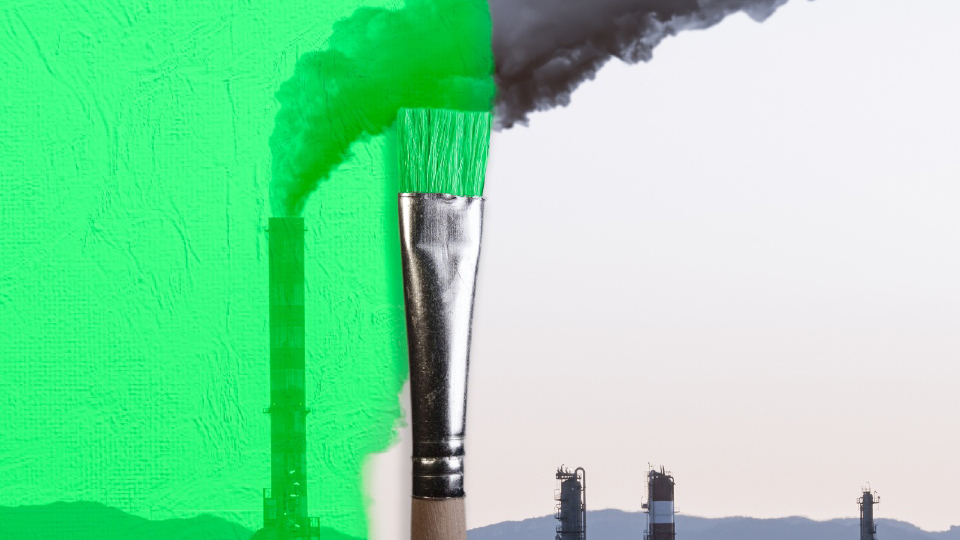The decision to host the event in Sharm el-Sheikh has come under scrutiny due to concerns around Egypt’s human rights record, as has the decision to let Coca-Cola sponsor the event, with many critics highlighting the company’s plastic footprint.
But what exactly is ‘greenwashing’ and why is it an issue?
In the latest Cuppa with a Scientist podcast, Dr Tom Stanton, a freshwater scientist in the Geography and Environment Department at Loughborough University, provides an explanation for the popular buzzword.
“So greenwashing is where an organization or an individual presents an image of itself that suggests it's greener than it actually is”, Dr Stanton explains.
“And so, it can mislead consumers, for example, buy product X, because it's more environmentally friendly than product Y. But if you haven't got the evidence to prove or support that, then that would be greenwashing.
“It can also misrepresent. ‘Vote for my political party because we did this one small green thing and that means that we're good for the environment’, for example.
“It’s basically misleading or misrepresenting people who are consuming or receiving your information by saying it's greener than actually is.”
Dr Stanton’s research looks to better understand the types of litter that make it into the environment and his recent research collaboration with the not-for-profit organisation, Planet Patrol, saw him analyse more than 43,000 items of litter found around the UK.
Members of the public logged any branding that was present on the litter and Dr Stanton’s analysis revealed that the Coca-Cola Company was the most frequently identified brand.
Dr Stanton says that the beverage company sponsoring COP27 is a type of greenwashing.
“If they [Coca-Cola] supported COP27 with a clear statement saying that they recognise that they're a big part of the problem and they want to learn from this event, they would probably have protected themselves from some of this backlash”, he said.
“But to just sponsor it and then use it as a tool to show environmental will is certainly greenwashing.
“I do, however, take some issue with some of the reporting around it and the organisations saying that Coca-Cola is the top polluter.
“This is wrong. It might be the most frequently found branded piece of litter in the environment, but pollution is so much more than litter. And Coca-Cola pollutes in many ways.”
And Dr Stanton says that’s not where the greenwashing stops at COP27.
“I also take issue with the fact that – and this might come after the events – there hasn't really been too much talk about the presence of certain political individuals and regimes at these events”, he said.
“When we have political regimes and administrations going to these events and taking part and then coming home and not really doing anything, just patting themselves on the back for going there, that's also greenwashing.
“If we're going to be talking about Coca-Cola greenwashing just by sponsoring COP27, we do need to hold those political powers to account as well.”
Dr Stanton’s interview on Cuppa with a Scientist can be watched in full on YouTube. In addition to greenwashing, he discusses his research – which includes looking at the prevalence and impacts of litter and textile fibres on waterways, his academic journey, and what brands need to do to tackle plastic pollution.
Or if you prefer to listen to your podcasts, you can do so on Buzzsprout:
More on Dr Stanton’s research with Planet Patrol can be found in the dedicated press release and his article in The Conversation.

